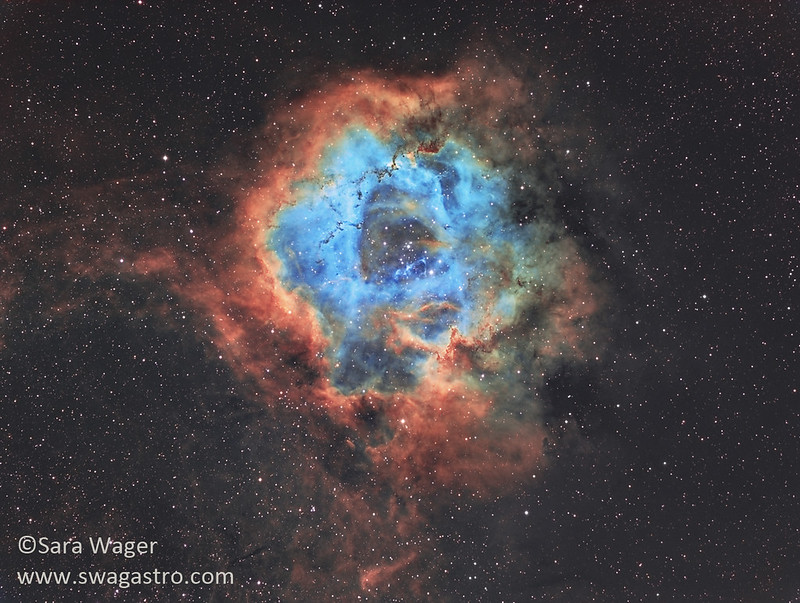- Messages
- 7,973
- Name
- Sara
- Edit My Images
- Yes
The Rosette Nebula (also known as Caldwell 49) is a large, circular H II region located near one end of a giant molecular cloud in the Monoceros region of the Milky Way Galaxy. The open cluster NGC 2244 (Caldwell 50) is closely associated with the nebulosity, the stars of the cluster having been formed from the nebula's matter.
The cluster and nebula lie at a distance of some 5,000 light-years from Earth and measure roughly 50 light years in diameter. The radiation from the young stars excites the atoms in the nebula, causing them to emit radiation themselves producing the emission nebula we see. The mass of the nebula is estimated to be around 10,000 solar masses.
This is a total of 40 hours worth of exposure each exposure being 30 minutes long.

The Rosette nebula in HST palette by Sara Wager, on Flickr
The cluster and nebula lie at a distance of some 5,000 light-years from Earth and measure roughly 50 light years in diameter. The radiation from the young stars excites the atoms in the nebula, causing them to emit radiation themselves producing the emission nebula we see. The mass of the nebula is estimated to be around 10,000 solar masses.
This is a total of 40 hours worth of exposure each exposure being 30 minutes long.

The Rosette nebula in HST palette by Sara Wager, on Flickr

